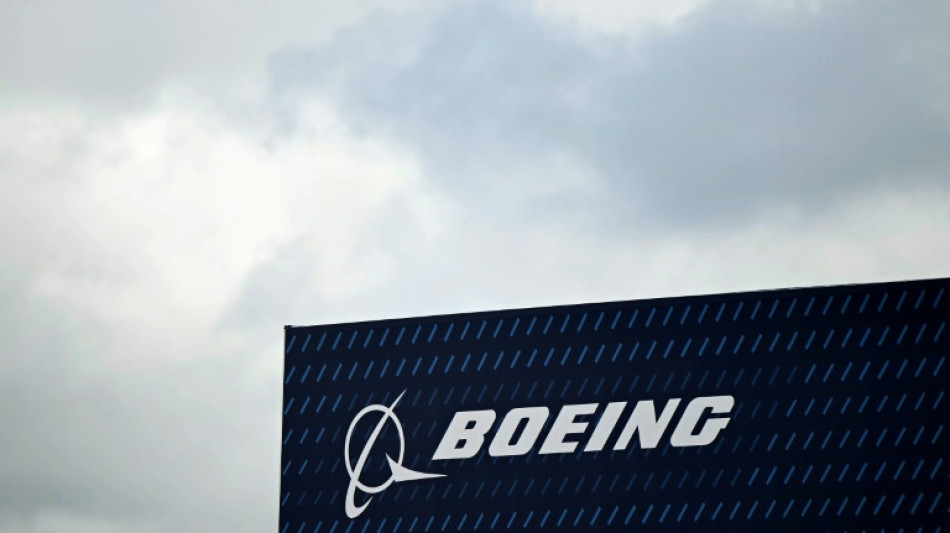

Boeing faces fresh crisis with US-China trade war
US aviation giant Boeing, fresh off a crippling labor dispute and quality control crisis, has now found itself drawn into the escalating trade conflict between Washington and Beijing.
The largest US exporter, Boeing has been caught in the crossfire after President Donald Trump imposed new tariffs of up to 145 percent on many Chinese products, sparking retaliatory 125 percent levies from Beijing.
The duties more than double the cost of aircraft and spare parts manufactured in the United States.
On Tuesday, Trump accused China of reneging on a "big Boeing deal," following a Bloomberg news report that Beijing ordered airlines not to take further deliveries of the company's jets.
The report also said that Beijing requested Chinese carriers to pause purchases of aircraft-related equipment and parts from US firms.
Boeing has declined to comment on the matter.
Last week, Bloomberg reported that China's Juneyao Airlines was delaying delivery of a Boeing widebody aircraft as the growing trade conflict drives up costs of big-ticket products.
- 'Not surprised'-
Boeing's website shows its order book at the end of March contained 130 aircraft due to Chinese customers, including airlines and leasing companies.
But as some buyers prefer to remain anonymous, the true figure could be higher.
Bank of America (BofA) analysts note that Boeing is scheduled to deliver 29 aircraft this year to identified Chinese companies, but added that a large portion of unidentified customers who bought aircraft are actually Chinese.
"China represents about 20 percent of the market for large civil jets over the next 20 years," BofA Securities said in a note.
It added that the US administration cannot ignore Boeing when it considers trade balances.
"Boeing is the US's largest exporter, as such, we are not surprised by China's move; however, we do see this as unsustainable," BofA Securities said.
Boeing's main competitor Airbus cannot be China's only supplier of large commercial jets given its capacity constraints, it said.
The Commercial Aircraft Corporation of China (COMAC) is also "highly dependent on US suppliers," the analysts said.
If China stopped buying aircraft components from the United States, COMAC's C919 program -- a competitor to Boeing's 737 or Airbus's A320 -- would be halted, they said.
A delivery blockage would affect the United States' trade balance further as well.
Boeing's production slowed significantly after quality issues that emerged with an in-flight incident in January 2024, and two factories were subsequently paralysed by a strike in the fall.
According to US official data, commercial aircraft exports reached $4.2 billion in August last year but dropped to $2.6 billion in September. They slipped further in October and November.
In December, when Boeing deliveries gradually resumed, the amount rose to $3.1 billion.
- Airline customers -
Boeing CEO Kelly Ortberg previously stressed that the company supports 1.8 million jobs in the United States.
A delivery freeze would have direct consequences for the group, which traditionally receives 60 percent of the price upon delivery.
With its difficulties of 2024, Boeing is already dipping heavily into cash flow that has been depleted by the Covid-19 pandemic and other issues.
Besides concerns surrounding Beijing, Boeing will likely be squeezed by higher duties too.
Michael O'Leary, CEO of Ryanair, Europe's largest airline by passenger numbers, said on Tuesday his company might postpone delivery of 25 Boeing jets expected from August if they cost more customs duties.
Ryanair, a major Boeing customer, notably placed an order in May 2023 for 300 737 MAX 10s, including 150 firm orders, for a list price estimated at over $40 billion.
Ed Bastian, CEO of Delta Air Lines, said last week that he does not intend to pay customs duties on the Airbus aircraft he expects this year.
E.Molitor--LiLuX



